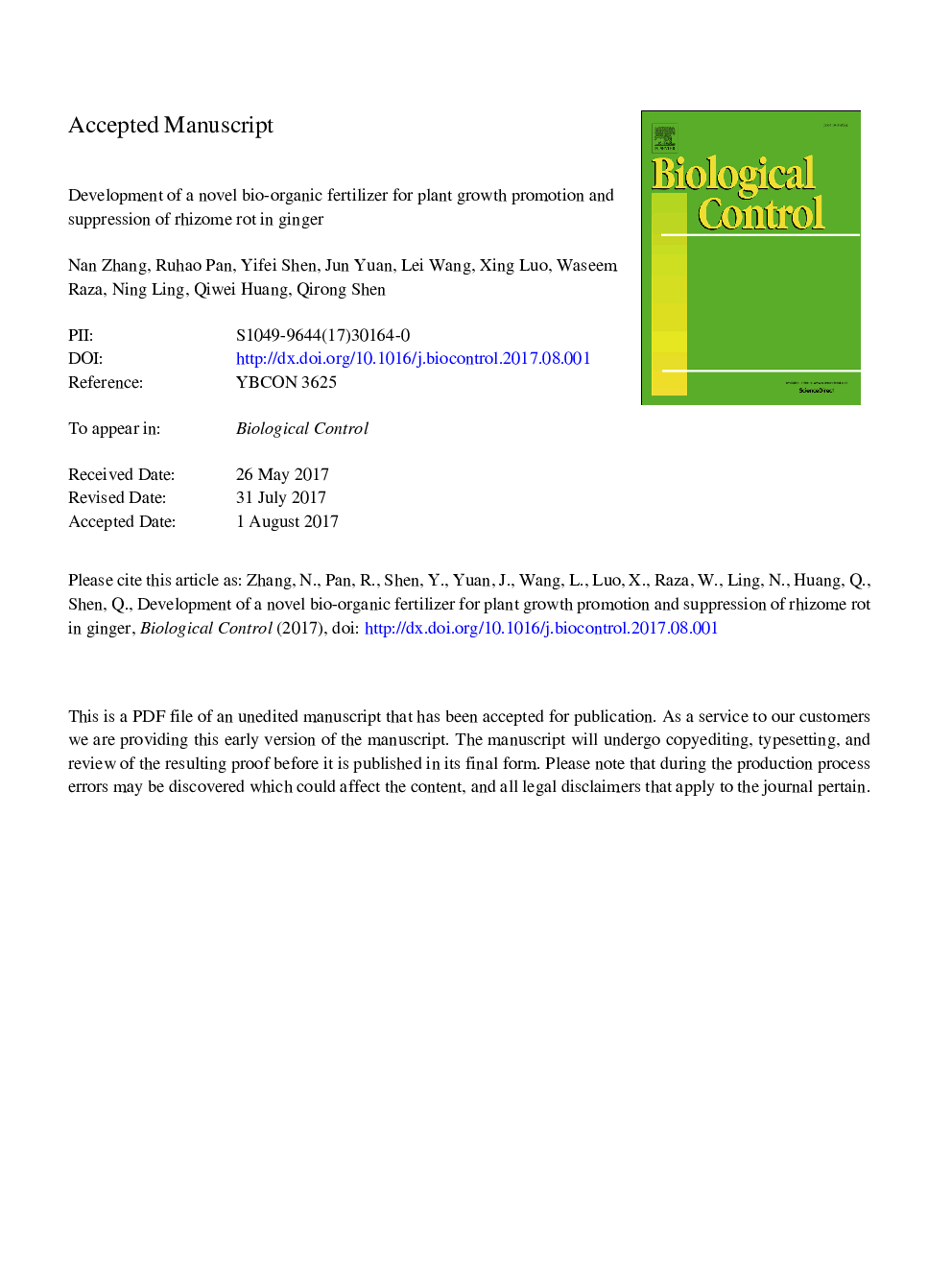| Article ID | Journal | Published Year | Pages | File Type |
|---|---|---|---|---|
| 5760731 | Biological Control | 2017 | 38 Pages |
Abstract
Rhizome rot of ginger caused by Fusarium oxysporum f. sp. zingiberi (Foz) is a soil-borne disease that adversely affects the seed rhizomes and crop production. Bacillus amyloliquefaciens NJPRHSDAQ-1 (NP-1), which has a substantial inhibitory effect on Foz in vitro, was isolated from the ginger rhizosphere. A pot experiment indicated that a bio-organic fertilizer made from NP-1 (BIO2) or other universal biocontrol agents (BIO1), the suspension of NP-1 (NP-1), and its cell-free fermentation broth (NP-1fb), all effectively reduced the disease incidence of rhizome rot, stimulated plant growth, and improved the microbial community compared to the control. The best control effect (78.3%) and the most significant suppression of Foz abundance (75.8% compared to control) were all observed in the BIO2 treatment. Two field experiments further indicated that BIO2 amendment can significantly increase ginger yield by 8.0-11.5% and can decrease the Foz population by 30.8-51.0% compared to control plants receiving only chemical fertilizer. Application of BIO2 also increased the growth and nutrient quality of ginger and soil enzyme activity. Pearson correlation analysis indicated a significant negative relationship between the abundance of culturable bacteria and Foz, while a negative correlation between culturable actinomycetes/fungi population and invertase/urease activity was observed. This study highlights the application prospect of a novel bio-organic fertilizer in ginger production for both disease suppression and growth promotion.
Related Topics
Life Sciences
Agricultural and Biological Sciences
Agronomy and Crop Science
Authors
Nan Zhang, Ruhao Pan, Yifei Shen, Jun Yuan, Lei Wang, Xing Luo, Waseem Raza, Ning Ling, Qiwei Huang, Qirong Shen,
